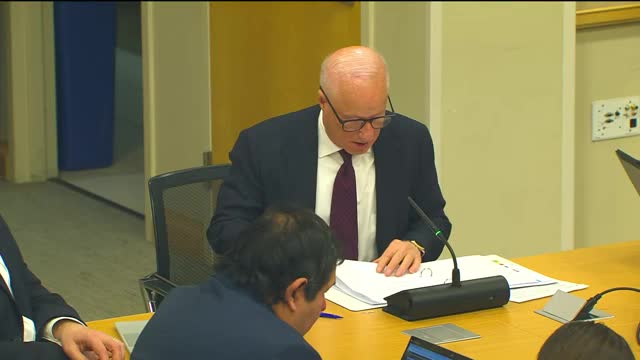Aurora staff to issue RFP for automated speed enforcement after study-session briefing
January 13, 2025 | Aurora City, Douglas County, Colorado
This article was created by AI summarizing key points discussed. AI makes mistakes, so for full details and context, please refer to the video of the full meeting. Please report any errors so we can fix them. Report an error »

Lieutenant Chris Hemsler of the Aurora Police Department reviewed the city's prior automated-photo enforcement pilot and identified four major system types: fixed-pole cameras, speed-trailer camera systems, transportable cameras and movable unmanned vehicles. Hemsler said the prior program was costly and difficult to staff, and summarized results: "With our pass program, we ended up spending over half a $1,000,000 and only made about a 115 in revenue from, photo enforcement." (transcript excerpt)
Hemsler said state law now allows municipalities to designate automated-vehicle-identification corridors on major arterials with speed limits above 35 mph if five years of crash or complaint data justify designation. He explained staff would need to amend a local ordinance that currently requires an employee to witness violations and would need a city reviewer to validate camera evidence before notices are sent.
Hemsler described RFP highlights staff proposes: vendor-provided automated portable trailers or devices operating 24/7, cost-neutral arrangements where vendor responsibility includes equipment, maintenance and mailing of violations, real-time APD access to live footage, compatibility with license-plate-reader systems, citation-processing portals and vendor liability for equipment downtime.
Council members asked about differences from the red-light camera vote, equipment ownership, staffing and appeals. Hemsler said the 2018 voter action specifically mentioned red-light cameras and did not prohibit other automated-traffic-enforcement technologies. On fines and thresholds he summarized: "The fine is $40 for the violation that's on a normal roadway. If it's in a school zone or a construction zone, it then doubles to 80." He also said automated citations are civil fines and do not go on driving records.
Council expressed interest in directing any net revenue into neighborhood traffic-calming programs and prioritizing corridors with high crash severity. Members also asked for an RFP term that would allow vendors to recover investments; staff said an annual contract, renewable, was the likely procurement model and that staff would return with results to council after issuing the RFP.
By the end of the study session council indicated general support to proceed with an RFP; staff will prepare ordinance changes, a notice/warning plan required by state law, corridor designations and a procurement package to return to council with recommendations.
Hemsler said state law now allows municipalities to designate automated-vehicle-identification corridors on major arterials with speed limits above 35 mph if five years of crash or complaint data justify designation. He explained staff would need to amend a local ordinance that currently requires an employee to witness violations and would need a city reviewer to validate camera evidence before notices are sent.
Hemsler described RFP highlights staff proposes: vendor-provided automated portable trailers or devices operating 24/7, cost-neutral arrangements where vendor responsibility includes equipment, maintenance and mailing of violations, real-time APD access to live footage, compatibility with license-plate-reader systems, citation-processing portals and vendor liability for equipment downtime.
Council members asked about differences from the red-light camera vote, equipment ownership, staffing and appeals. Hemsler said the 2018 voter action specifically mentioned red-light cameras and did not prohibit other automated-traffic-enforcement technologies. On fines and thresholds he summarized: "The fine is $40 for the violation that's on a normal roadway. If it's in a school zone or a construction zone, it then doubles to 80." He also said automated citations are civil fines and do not go on driving records.
Council expressed interest in directing any net revenue into neighborhood traffic-calming programs and prioritizing corridors with high crash severity. Members also asked for an RFP term that would allow vendors to recover investments; staff said an annual contract, renewable, was the likely procurement model and that staff would return with results to council after issuing the RFP.
By the end of the study session council indicated general support to proceed with an RFP; staff will prepare ordinance changes, a notice/warning plan required by state law, corridor designations and a procurement package to return to council with recommendations.
View full meeting
This article is based on a recent meeting—watch the full video and explore the complete transcript for deeper insights into the discussion.
View full meeting
